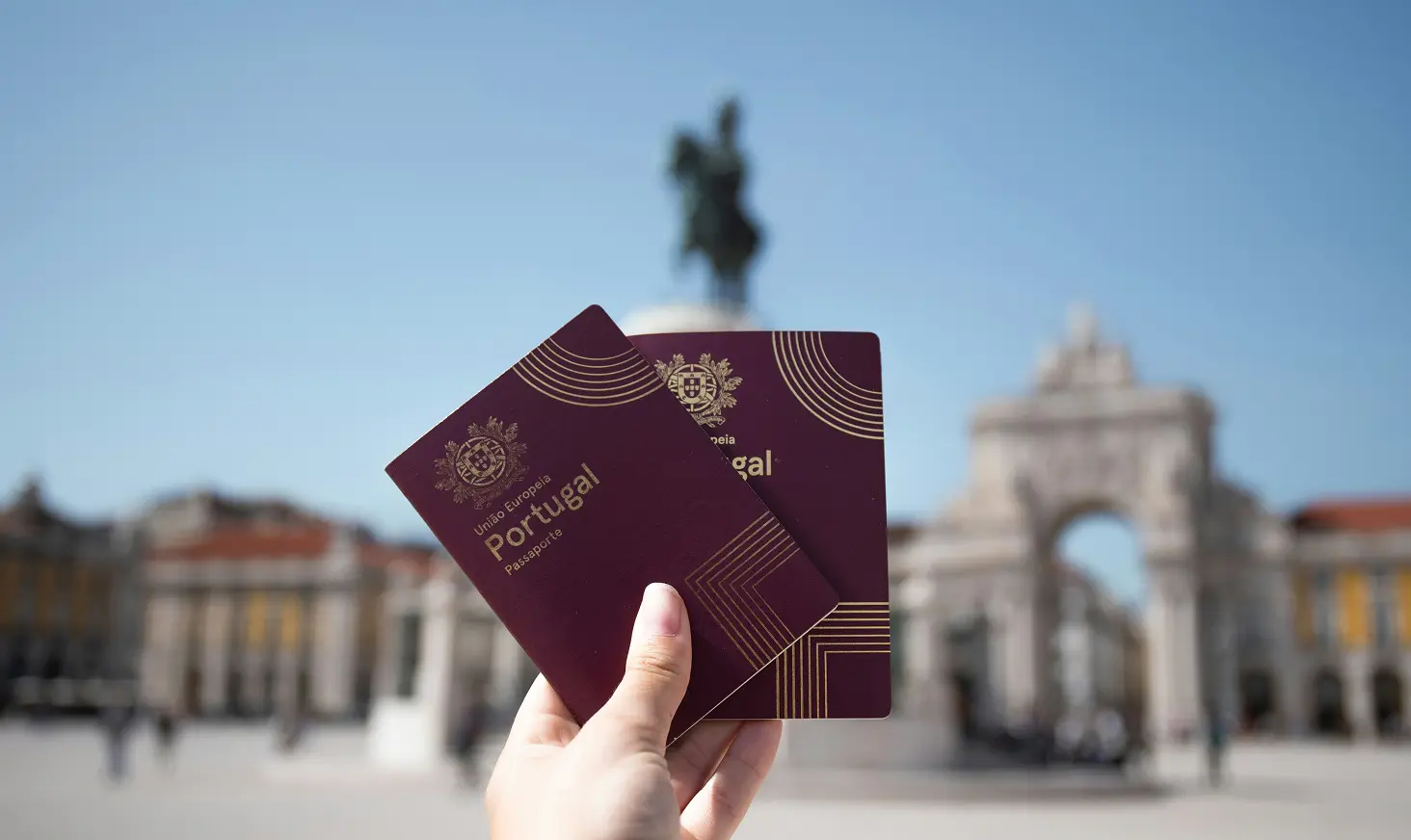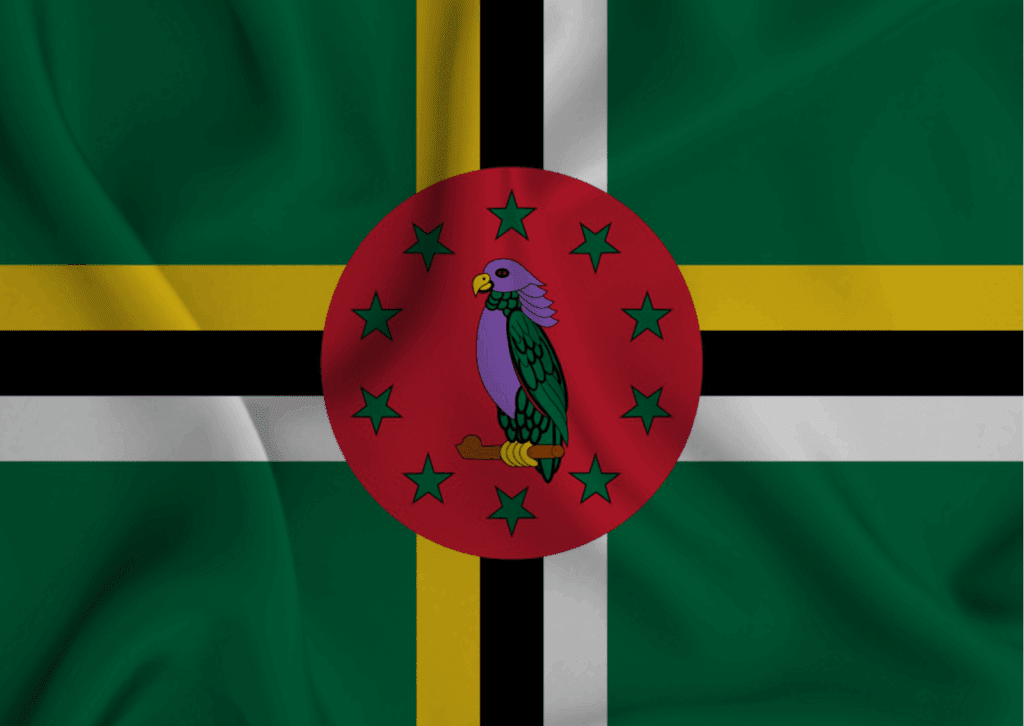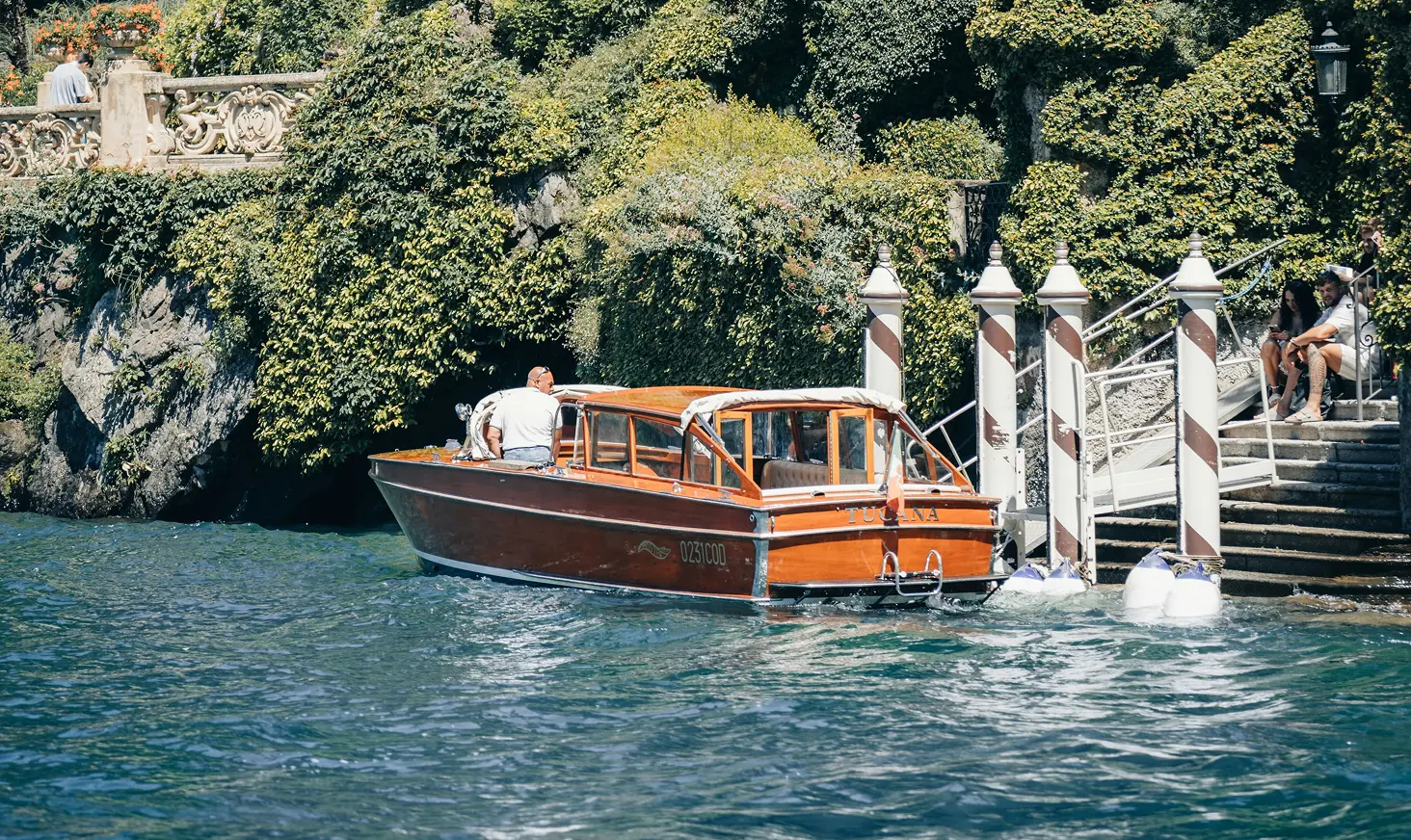Best Country to Get Dual Citizenship: Top Picks for Global Freedom

Dual citizenship is a long-term strategy that gives you access to more stable economies, better healthcare systems, political safety nets, and the flexibility to live, work, or retire in different parts of the world.
Some dual citizenships can be acquired quickly through ancestry or marriage. Some countries require long-term residence, large investments, or even military service. And some don’t allow dual citizenship at all, forcing you to give up your original one in exchange.
Benefits of Dual Citizenship
If you want a second passport, you need to look beyond the number of countries it gets you for visa-free travel. The best country to get dual citizenship will offer real, long-term advantages, especially for professionals, investors, and global families who need flexibility and protection.
Expanded Travel Freedom
The obvious benefit is visa-free or visa-on-arrival access to more countries. But the real value lies in strategy.
- An EU passport allows free movement, residency, and work rights in 27 countries.
- A combination of a U.S. passport with a Caribbean one grants access to both the Western world and Commonwealth countries.
Tax Optimization and Financial Security
Many dual citizenship countries offer favorable tax regimes, access to offshore banking, and the ability to legally diversify assets.
- Countries like Greece offer tax incentives for foreign income.
- Caribbean nations allow banking privacy and no worldwide income taxation.
Plan B and Political Safety
In an unstable world, having an exit route matters. In cases of political unrest, legal uncertainty, or discrimination, a second passport gives you options.
Better Opportunities for Family
The best country for dual citizenship usually lets you pass on citizenship to children, sometimes even to grandchildren. This ensures:
- Access to public education
- Local healthcare
- Employment without needing a work visa
- Freedom to study or retire abroad
Why Some Countries Don’t Allow Dual Citizenship
While many nations don’t have a problem with their citizens holding two passports, others restrict or ban dual citizenship entirely. The reasons behind the decision are different, but are often tied to politics, national identity, and legal practicality.
One of the main concerns is divided loyalty. Governments that prohibit dual nationality often argue that citizens should have an undivided commitment to one state. When there is a conflict or diplomatic tension, dual citizens might face conflicting obligations, such as military service in two countries or being subject to competing laws.
National security is another factor. Some countries believe that if their citizens hold foreign nationality could create vulnerabilities, especially if those citizens have political or business ties abroad. For example, China and India ban dual citizenship outright, citing concerns about loyalty and control.
In some cases, restrictions are tied to national identity and unity. Countries that value a strong cultural or ethnic cohesion may view dual citizenship as a dilution of their national character. Japan, for example, has strict rules requiring citizens to choose one nationality by a certain age.
Finally, immigration policy also plays a role. Some governments fear that easy dual nationality could lead to “citizenship shopping,” where people obtain passports purely for convenience, without contributing to the nation’s society or economy.
Why You Shouldn’t Give Up Your Original Citizenship
Unless your current country forces you to choose, there’s usually no good reason to give up your original passport. Dual citizenship allows you to enjoy the rights and protections of both countries, and renouncing one can permanently cut you off from things you may later need, like the right to return, access to healthcare or social benefits, or even the ability to inherit property.
Some assume that giving up their first nationality will simplify taxes or legal obligations, but that’s rarely the case.
There’s also a risk factor. If your second country ever changes its laws or revokes your citizenship, you could be left stateless. Your original passport is a legal fallback you may one day need. Unless there’s a compelling reason, it’s almost always smarter to keep both.
Top 6 Countries to Get Dual Citizenship in 2025
What matters most to you? The answer to that question will determine which dual citizenship to persue.
We’ve handpicked six countries that strike the right balance between long-term advantages and legal clarity. Each allows you to keep your original passport, making them ideal picks for dual citizenship. But the final decision is up to you.
Portugal

Portugal may not the fastest or cheapest option, but it’s the most stable and well-respected. The country offers a clear and attainable path to dual citizenship after five years of legal residence, with minimal physical presence required. You’re not expected to live there full-time, and you don’t need to give up your original citizenship.
The system is designed to welcome foreigners, and if you want a base in Europe or more rights for your family, Portugal gives you the tools to make it happen.
Key Facts
Why Choose Portugal for Dual Citizenship
Gaining Portuguese citizenship gives you far more than just a travel document. You become a full EU citizen, with the right to live and work anywhere in Europe. You’re granted access to healthcare, education, and legal protections that come with EU membership.
You can also pass your citizenship on to your children, giving them long-term mobility and security. Portugal also doesn’t require you to renounce your existing nationality, doesn’t ask for military service, and won’t burden you with integration demands.
Most importantly, there is a transparent legal framework. While other programs have faced political pressure or been suspended entirely, Portugal’s pathway has remained steady and credible.
How You Can Qualify
- Naturalization: Live legally in Portugal for 5 years under any visa, pass a language test, and apply.
- Golden Visa: Invest €500,000 in a qualifying fund, spend just 7 days per year in Portugal, and apply for citizenship after 5 years.
- Marriage: If you have been married to a Portuguese citizen for at least 3 years, you can apply for citizenship, even if you don’t live in Portugal.
Ireland

Ireland offers a naturalization path through legal residence, but also a generous and simple ancestry-based citizenship program. You don’t need to move, take a language test, or give up your original citizenship.
If you have a parent or grandparent born in Ireland, you may already qualify for an EU passport. It’s also one of the simplest ways to gain dual nationality with full European rights.
Unlike many other European countries, Ireland does not place a time limit on reclaiming citizenship through descent. It also welcomes dual nationals without restriction and provides a clear legal process through the Foreign Births Register.
So if you want easier travel, or just to reconnect to your Irish heritage, Ireland is one of the best countries to get dual citizenship.
Key Facts
Why Choose Ireland for Dual Citizenship
The Irish passport ranks among the strongest in the world for visa-free travel, covering over 190 countries. If you’re eligible through descent, you don’t need to relocate or give up your current passport. Yet the moment you’re registered, you gain full EU rights, as well as access to healthcare, education, and job markets across Europe.
If you don’t qualify through ancestry, Ireland still offers a clear route through naturalization. Foreign nationals who legally reside in Ireland for five years, or three years if married to an Irish citizen, can apply for citizenship through residency. The process is well-defined and supported by legal precedent, with no language test or cultural integration exam.
Unlike more complex programs in other countries, the Irish government provides a transparent, legally codified process for both descent and residency-based applications.
How You Can Qualify
- Citizenship by descent: You qualify automatically if your parent was born in Ireland. If your grandparent was born in Ireland, you can register in the Foreign Births Register to claim citizenship.
- Naturalization: If you live legally in Ireland for 5 years (or 3 if you’re married to an Irish citizen), you can apply for citizenship through residency.
- Marriage: Spouses of Irish citizens can apply after 3 years of marriage and residence in Ireland. If residing abroad, longer timelines apply.
Dominica

If you want a fast path to a second passport, Dominica is one of the best countries to get dual citizenship. Its citizenship by investment (CBI) program has been active since 1993, which makes it one of the most established and trusted in the Caribbean.
The entire process can be done remotely. It doesn’t require an interview or language test, and you don’t need to live in Dominica at any point. It’s efficient, low-maintenance, and fully legal under Dominican law.
Dominica allows dual citizenship without restriction. That means you can obtain a second passport and all the benefits that come with it, without giving up your original nationality. With processing times as short as three months, it’s one of the fastest and most practical solutions for global mobility and long-term contingency planning.
Key Facts
Why Choose Dominica for Dual Citizenship
Dominica’s passport provides visa-free or visa-on-arrival access to over 145 countries, including the Schengen Zone, Singapore, and Hong Kong. You’re not required to reside in the country, file taxes on foreign income, or learn a new language. For high-net-worth individuals and entrepreneurs, this provides a clean, low-maintenance solution that just happens to be a perfect place for a vacation, too.
It’s important to note that the country’s visa-free access to the UK was revoked in 2023 due to concerns over the CBI program’s vetting standards, and the EU has introduced mechanisms to suspend visa waivers if similar issues arise. While Dominica still has Schengen access and is working to restore UK privileges, applicants should be aware of the growing regulatory pressure from Europe.
One application can also cover a spouse, dependent children, and even parents, so your whole family is covered.
How You Can Qualify
- Citizenship by investment (Real estate): Contribute $200,000 to the Economic Diversification Fund (single applicant), or $250,000+ for a family of four. Additional government fees apply.
- Citizenship by marriage: Spouses of Dominican citizens may apply after 3 years of marriage. Applicants are subject to background checks and verification of the relationship.
- Citizenship by descent: Children of Dominican citizens, even if born abroad, are eligible to apply through descent with proper documentation.
Italy

Italy is one of the most beautiful dual-citizenship countries in Europe. The easiest path in Italy is jus sanguinis, the right to claim nationality through bloodline.
In 2025, Italy introduced reforms that clarified who qualifies by descent. You now need a parent or grandparent who was either born in Italy or lived there for at least two years before your birth or adoption.
Still, if you have an Italian-born parent or grandparent, you may be eligible for citizenship without needing to live in Italy, take a language test, or renounce your original nationality.
And if you plan to live in Italy, citizenship by residency is available, though the timeline is longer. Even with the reforms, dual citizenship in Italy can still give you one of the strongest long-term positions within Europe.
Key Facts
Why Choose Italy for Dual Citizenship
Italian citizenship provides full EU rights: the ability to live, work, and study anywhere in Europe, access to public healthcare and education, and visa-free travel to over 190 countries.
Italy also imposes no restrictions on dual nationality. This means you can hold on to your original passport while enjoying all the legal and financial advantages of being an EU citizen.
Citizenship is also inheritable. If you’re an Italian citizen at the time your child is born, they automatically gain the same status, even if they’re born outside Italy.
And although the country has introduced clearer boundaries for descent-based claims, it still maintains a transparent and legally stable path to recognition, with many consulates abroad accepting well-documented applications.
How You Can Qualify
- Citizenship by descent: Available if you have a parent or grandparent who was born in Italy, or who lived in Italy for two consecutive years before your birth. Applications are processed through consulates or directly in Italy.
- Naturalization: Live in Italy legally for 10 years (non-EU citizens) or 4 years (EU citizens). Applicants with Italian ancestry may qualify in 3 years. Language and integration requirements apply.
- Marriage: If married to an Italian citizen, you can apply after 2 years of legal residence in Italy or 3 years of marriage if living abroad. Timeframes are halved if you have children together.
Argentina

If you want speed and simplicity, Argentina offers the fastest naturalization timeline in the world, just two years of legal residency. There are no language exams, no integration tests, and no requirement to renounce your original citizenship.
Unlike many countries that treat naturalization as a privilege, Argentina treats it as a constitutional right. It’s one of the few countries where acquiring citizenship is straightforward, legally protected, and not subject to unpredictable policy shifts.
The country’s open approach to dual nationality, low cost of living, and access to regional mobility make it one of the most practical choices for a second passport.
Key Facts
Why Choose Argentina for Dual Citizenship
Argentina’s passport grants access to over 170 countries, including the EU, UK, and much of South America. But beyond mobility, Argentine citizenship provides advantages through Mercosur, allowing citizens to live and work freely in neighboring countries like Brazil, Uruguay, and Paraguay.
What sets Argentina apart is its legal approach: naturalization is handled by the courts, not the executive branch, which means fewer delays and clearer standards. The courts routinely approve citizenship applications after two years, as long as you’ve established some form of residence and can show basic integration (like a local ID or employment).
Argentina is one of the best dual citizenship countries because of formal agreements with countries like Spain and Italy to streamline dual nationality recognition. This makes it especially useful as part of a long-term citizenship strategy, whether you plan to live there full-time or not.
How You Can Qualify
- Citizenship by descent: If one or both of your parents are Argentine citizens, you are entitled to citizenship regardless of where you were born.
- Naturalization:Reside legally in Argentina for two years and apply through the civil court system. No language test required. You must hold a local ID and have no serious criminal record.
- Marriage: While marriage doesn’t grant automatic citizenship, it simplifies the residency process, which you can then convert to citizenship after two years.
Grenada

Grenada offers something unique: an affordable citizenship by investment program with visa-free access to both China and the EU, plus eligibility for the U.S. E-2 investor visa. That last detail is crucial; Grenada is the only Caribbean country whose citizens can apply for the E-2, which allows long-term residence in the United States through business investment.
And when you add fast processing, full recognition of dual citizenship, and no residency requirement to the equation, Grenada’s program is ideal for investors seeking strategic dual citizenship.
Key Facts
Why Choose Grenada for Dual Citizenship
Grenada’s passport offers the opportunity to live and work in the United States through the E-2 visa treaty. It’s also one of the very few countries in the world that offers visa-free entry to China, which even many EU passports do not.
Citizenship is permanent, not revocable, and can be passed on to future generations. There are no global tax obligations for non-residents, and no requirement to spend time in Grenada before or after approval. The application process is confidential, fast, and entirely remote, with government-authorized agents handling everything.
One application can cover spouses, dependent children, and often parents or grandparents. So if you want mobility, legal diversification, or access to the U.S. and Chinese markets, Grenada provides a combination of benefits that few countries with easy citizenship can match.
How You Can Qualify
- Citizenship by investment (Real estate): Purchase government-approved real estate valued at $350,000 or more. Must hold the property for five years.
- Citizenship by investment (Donation): Contribute $235,000 to Grenada’s National Transformation Fund (single applicant).
- Citizenship by marriage: Spouses of Grenadian citizens can apply after two years of marriage, subject to due diligence and marriage verification.
- Citizenship by descent: Individuals born to Grenadian parents (even outside the country) can apply through descent, provided documentation supports the claim.
How Bitizenship Helps You Get Dual Citizenship in Portugal
If you’re comparing dual citizenship countries, Portugal should be at the top of your list, and for good reason. Its Golden Visa remains one of the most practical and secure ways to gain EU residency through investment.
With us, at Bitizenship, you can invest in the Unbound Fund, a government-approved investment route that qualifies under Portugal’s latest rules.
You won’t need to uproot your life or live in Portugal full-time. This is a flexible process that gives you the freedom to stay where you are while working toward something bigger: a second passport backed by EU rights and protections.
We manage everything. From guiding your investment to compiling your immigration documents, we handle the process from start to finish. You’ll also get access to vetted legal and tax professionals in Portugal, so nothing gets overlooked.
Many people wonder how hard it is to move to Portugal, and we’re here to tell you that, with the right support, it can be a piece of cake. You don’t need to navigate unfamiliar systems or deal with international paperwork alone; we make it seamless.
Once you’re a resident, you unlock visa-free travel to over 190 countries, the right to live and work across the EU, and access to public services like healthcare and education. And after just five years, you’ll be eligible for dual citizenship in Portugal, without giving up your current nationality or meeting strict residency demands.
If you’re ready for a second passport that has long-term value, we’re ready to help you take the next step.
Final Thoughts
The best country to get dual citizenship depends a lot on what you want to achieve. Portugal offers flexibility and long-term value. Ireland appreciates ancestral ties. Dominica and Grenada offer efficient, affordable citizenship by investment. Italy and Argentina make citizenship accessible through family and residency.
What do they all have in common? They allow dual citizenship and give you the freedom to hold onto your original nationality while gaining all the benefits of a new one.
If you’re ready to make the best choice, work with a team that knows the process inside and out. We, at Bitizenship, will help you obtain residency in Portugal through legal, strategic, and personalized guidance, which will transform to dual citizenship in no time.
Frequently Asked Questions About the Best Countries to Get Dual Citizenship
What country is easiest to get dual citizenship in?
Argentina is currently one of the easiest countries to get dual citizenship through naturalization, requiring only two years of legal residence and no language test. Ireland and Italy also offer simplified paths if you qualify through ancestry.
Which country is best for a second passport?
That depends on your goals. For EU access, Portugal and Ireland are top-tier. For investment-based citizenship, Dominica and Grenada are among the most efficient. If you want a fast route with no investment, Argentina is hard to beat.
Which country gives citizenship fastest?
Dominica and Vanuatu offer citizenship through investment in as little as 2-6 months. Argentina provides the fastest naturalization route, requiring just two years of residency.
Which country has the best citizenship benefits?
Portugal and Ireland provide access to the entire EU, including healthcare, education, and the right to live and work in 27 countries. These benefits, combined with strong passports, make them ideal for global mobility and long-term stability.
Which country gives free citizenship in Europe?
There’s no European country offering “free” citizenship, but Ireland and Italy offer citizenship by descent with no investment required, provided you meet the documentation and generational criteria.
What are the easiest countries to get dual citizenship?
These are some of the most straightforward dual citizenship countries:
Portugal (5-year, with minimal residency through Golden Visa)
Ireland (ancestry)
Italy (ancestry, now limited to 2 generations)
Argentina (2-year naturalization)
Dominica (affordable investment)
What’s the fastest country to get citizenship in Europe?
Portugal currently has the shortest standard naturalization period in the EU at just 5 years, without requiring full-time residency. Spain offers faster timelines for citizens of Latin American countries but has stricter physical presence rules.
What are the top 10 best citizenships in the world?
While rankings vary, the following often make the list based on stability and legal protections:
Portugal
Ireland
Italy
Dominica
Grenada
Argentina
Germany
Sweden
Canada
Australia
What are the easiest countries to get citizenship by investment?
Dominica: from $200,000
Grenada: from $235,000
St. Kitts & Nevis: from $250,000
Vanuatu: from $130,000
Why is dual citizenship considered bad in some places?
Some countries view dual citizenship as a security or loyalty issue, which is why countries like India, China, and Singapore do not allow it. It can also cause complications with taxes, military service, and diplomatic protections.
Are there countries offering citizenship for free?
No country offers citizenship entirely for free. However, citizenship by descent (e.g., Ireland or Italy) can be obtained at low cost if you qualify. Birthright citizenship (e.g., in Argentina or the U.S.) is granted automatically to children born in the country.
Which country gives the fastest citizenship by marriage?
Spain: 1 year of residence after marriage
Brazil: 1 year of marriage + child together
Colombia: 2 years of marriage + 1 year of resident

